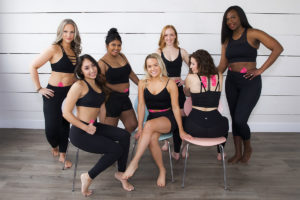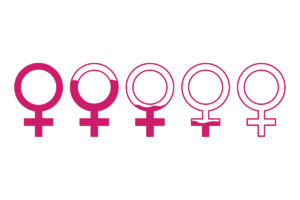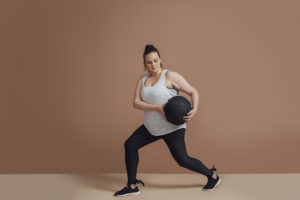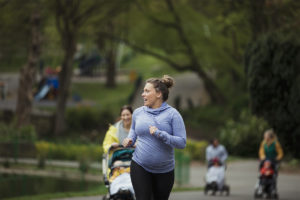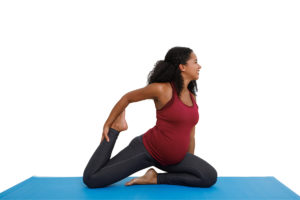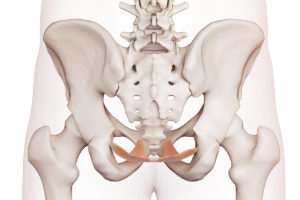Changing Attitudes About Managing Women’s Health
One solution that has recently come to market has been the innovative use of kinesiology tape infused with menthol and borneol as a means for delivering topical pain and inflammation relief. Mobility Tape for Her has created a real game changer!
Low-Impact Cardio Helps Expectant Moms
New findings show that doing low-impact cardio at least three times per week in the second trimester of pregnancy can help sleep.
Optimizing Women’s Strength Training
A new research review sheds light on how monthly hormonal changes influence the risk of muscle damage during female weight lifting.
Women Pace Better Than Men
Women pace themselves better than men when running marathons, according to an analysis of 10 years of marathon results on RunRepeat.com.
Black Women Less Likely to Meet Activity Guidelines
Findings from the Black Women’s Health Study show that African American women have a life expectancy 2.7 years shorter than Caucasian American women.
Lower Weight in Young Women ≠ Higher Fitness
A common assumption is that people who weigh less are more fit. For younger adult women, however, this may not be the case.
Fit Pros Can Help Women With Postpartum Fatigue
A review study highlights another opportunity for fit pros: helping women reduce feelings of extreme tiredness in the postpartum period.
Impact of Oral Contraceptives on Resistance Training
Young women who take second-generation oral contraceptives (OC) may want to pay attention to differences in weight training adaptations.
HIIT Neuromuscular Training Helps Inactive Women
To stimulate inactive or overweight clients’ programming, try blending high-intensity interval training and functional resistance training.
Pregnant Exercisers Can Improve Aerobic Fitness
Prenatal exercise can be a beneficial and effective way to increase maternal cardiorespiratory fitness, even for inactive women.
Stay Active During Perimenopause
You can motivate female clients to value training during the perimenopausal years for the dividends it pays in stoking metabolism.
Why Men Breathe More Easily Than Women When Exercising
Women, on average, have a more difficult time breathing during vigorous exercise because their airways are smaller, according to The FASEB Journal.
A Pregnant Pause
Desi Bartlett, MS, CPT, E-RYT, met Natiya Guin at her yoga class and later guided her training through her second pregnancy.
Prenatal Yoga Practice May Ease Delivery
Here’s more insight into how yoga helps pregnant exercise enthusiasts. Yoga may also play a role in shortening the first and second stages of labor.
Exercise and Mental Fitness
Researchers analyzed 80 studies on physical training’s cognitive benefits, highlighting differences by activity, gender and intensity.
Moms-to-Be Can Still Go Fish
Findings published in JAMA Network Open should help expectant mothers to rest a bit easier the next time they troll for dinner at the fishmonger.
Prenatal Exercise Promotes Healthy Circulation
New research findings suggest that prenatal exercise may lower a woman’s risk of developing high blood pressure when pregnant.
Pelvic-Floor Exercise Training and Prenatal Exercise Programs
Polish researchers evaluated the effects of adding pelvic-floor muscle education and training to a prenatal high-/low-impact exercise program.
Exercise and Longevity for Women
A new study further supports the benefits of maintaining cardiovascular fitness during middle-age and beyond. In a study presented at the European Society of Cardiology’s EuroEcho 2019 meeting in Vienna, high cardiovascular fitness was linked with significantly lower death risks from heart disease, cancer and other causes for middle-aged and older women.
Women and Strength Training
Women do not respond to weight training the same way men do. University of New South Wales researchers in Sydney conducted a comprehensive search of the literature on resistance training and found only 24 randomized controlled studies that focused exclusively on women. Lead study author Amanda “Mandy” D. Hagstrom, PhD, lecturer in exercise science at UNSW Medicine, said, “I was surprised. I knew there wouldn’t be many [studies], but I thought there’d be more than that.” The selected studies included almost 1,000 women.
